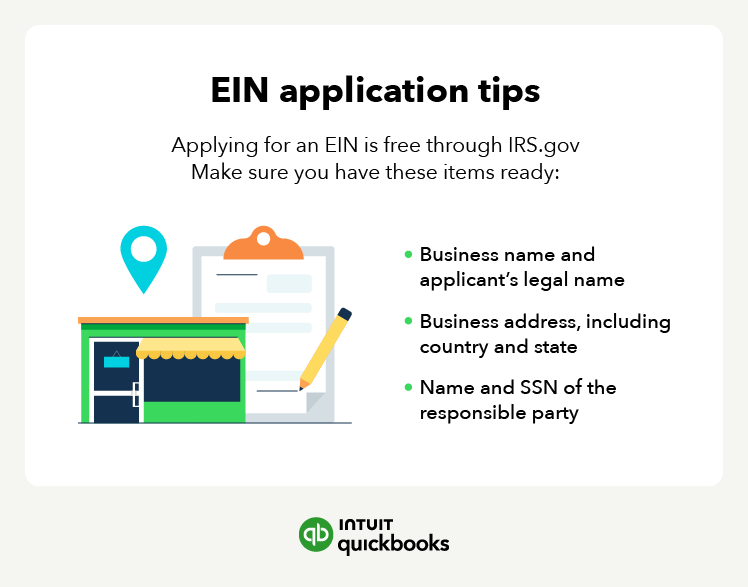Bring your entrepreneurial vision to life in the Centennial State! Whether you're a native Coloradan or new to the area, starting a business in Colorado is a thrilling opportunity. From securing funding and registering your business to exploring tax incentives and insurance options, we’re here with resources and guidance tailored to help Colorado entrepreneurs succeed.

How to start a business in Colorado in 14 steps (2025 guide)
Why start a business in Colorado in 2025?
Colorado is known for being a haven for outdoor enthusiasts, but it's also a prime spot for entrepreneurs to launch and grow their businesses. It has a favorable tax environment, a large working-age population, and ample access to funding. Plus, a recent study by B2B Reviews ranked Colorado as one of top states for work-life balance. So, if you're ready to embark on your business journey, the Centennial State might be the perfect place to plant your roots. Our small business guide will walk you through the steps.
Here are the topics we’ll cover in this step-by-step guide:
- 14 steps to starting a business in Colorado
- Step 1: Decide what type of industry is best for your business
- Step 2: Conduct industry research
- Step 3: Create a business plan
- Step 4: Choose your business entity: Types of business entities in Colorado
- Step 5: Secure funds: Colorado small business funding, loans, and grants
- Step 6: Choose your Colorado business name and Colorado DBA
- Step 7: Pick a business location in Colorado
- Step 8: Find an Colorado registered agent
- Step 9: Get an Colorado EIN and file your tax and employer identification documents
- Step 10: Register as a small business in Colorado
- Step 11: Register for your business license and permits in Colorado
- Step 12: Secure insurance for your Colorado small business
- Step 13: Prepare to pay taxes on your business in Colorado
- Step 14: Set up your business bank account
- Additional resources to get your business started
- Frequently asked questions
14 steps to starting a business in Colorado
Starting a business in Colorado is an exciting journey filled with opportunities to innovate, grow, and achieve your goals. Below, we’ve outlined the key steps, from shaping your vision to building a solid foundation for long-term success. With small business resources and insights specifically for Colorado entrepreneurs, you’ll be one step closer to putting your vision in motion.
Step 1: Decide what type of industry is best for your business
Whether you aspire to launch an oil and gas company, a defense contracting business, or a river rafting guide service, Colorado offers countless opportunities for small businesses. Match your interests and skills to local market demands—southwest Colorado thrives in oil and gas, Grand Junction is booming with outdoor tourism, and Colorado Springs is a hub for aerospace innovation. Or, consider financial consulting in retirement-friendly towns like Durango.
Consider your expertise, the big industries in the state, and how your business can meet an untapped need. Be sure to reach out to your local chamber of commerce, and research trends to identify service or product gaps you might fill.
Not sure where to start? Begin by exploring a variety of small business ideas to spark inspiration.
Step 2: Conduct research in your industry
It’s essential to understand your intended industry before investing time and money into a new business. Identify your target audience, analyze market trends, conduct a competitive analysis, and determine your unique service offerings or product propositions. Colorado’s top industries include technology, oil and gas, aerospace and defense, tourism and outdoor recreation, agriculture, and financial services, to name a few. Evaluate how your business concept might fit into or complement these industry sectors. The Colorado Office of Economic Development and International Trade is a good place to start your research and develop your strategy.
Step 3: Create a business plan
Start your Colorado small business on a solid foundation and make sure you build a business plan. This is your roadmap to determine where you're going and your business concept. Use your business plan to establish your target market, develop a marketing plan, create financial projections, and secure funding for your small business.
A complete business plan typically consists of the following essential sections:
- Executive Summary: Summarize your business concept, goals, and vision in a clear and concise format.
- Company Description: Outline your company’s mission, history, and primary objectives.
- Market Research and Potential: Examine your target audience, industry trends, and growth opportunities.
- Competitive Analysis: Evaluate your competition and highlight your unique strengths.
- Products and Services: Explain your offerings and the value they provide to your customers.
- Marketing and Sales: Define your approach to attracting, engaging, and retaining customers.
- Business Financials: Present financial forecasts, including income statements, balance sheets, and cash flow projections.
- Management and Leadership: Showcase the skills, expertise, and experience of your team.
- Funding Request: Specify your funding requirements and explain how you plan to use the capital.
- Appendix: Provide supporting materials like market research, financial documents, or product visuals.
A free business plan template can help you get started. The Colorado Small Business Development Center Network is also a good resource for no-cost business plan guidance and support.
Step 4: Choose your business entity: Types of business entities in Colorado
Whether you’re a solopreneur or plan to create a more formal structure with shareholders, your business entity structure will determine how you pay taxes, manage liabilities, and run operations. Here are the main types of structures for Colorado small businesses.
Sole Proprietorship
A business owned and operated by one person, with no legal distinction between the owner and the business.
General partnership
A business owned by two or more people who share profits, losses, and management responsibilities.
Corporation
A legal entity separate from its owners, with shareholders who have limited liability for the company's debts and obligations.
Limited Liability Company (LLC)
A hybrid business structure combining the limited liability of a corporation with the tax flexibility of a partnership. Learn more about LLCs.
Step 5: Secure funds: Colorado small business funding, loans, and grants
How will you fund your new Colorado business? Starting a business involves varying costs depending on the type of business and required permits. You may be able to start a sole proprietorship for as little as a few hundred dollars, but more complex structures with employees may cost several thousand to set up. Be sure to consider additional licensing fees based on your business operations.
Your overall funding needs will depend on a variety of factors like your business structure, industry, equipment, supplies, and specific goals. To help you get started, here's a rundown of some common funding options for Colorado entrepreneurs:
The following are a few Colorado-specific funding opportunities that may be available to you:
Office of Economic Development and International Trade grants
Colorado’s Office of Economic Development and International Trade offers resources on a variety of grant and loan opportunities around the state, including early-stage capital grants, advanced industries proof of concept grants, and cash collateral support.
First Southwest Community Fund Grants
If your small business is located in a rural area, you might qualify for grants or loans through First Southwest Community Fund.
Colorado Enterprise Fund
The Colorado Enterprise Fund has resources for grant programs in cities and counties throughout the Centennial State.
Step 6: Choosing your Colorado business name and Colorado DBA
Select a business name that will differentiate yourself from competitors and communicate what makes your products or services stand out. Colorado requires a completely unique name for your business. When choosing something that reflects your brand identity, you’ll need to do an entity search with the Colorado Secretary of State to ensure that the business name is available.
Reserve your business name
You can easily reserve your business name online through the Secretary of State’s website.
Filing a DBA (Doing Business As)
In Colorado, you must register your trade name, or DBA, with the Colorado Secretary of State if you want to do business in the state under a name other than your legal business name.
Step 7: Pick a business location in Colorado
Choose where you will locate your business. Imagine a home office to keep startup costs down, a bustling storefront in Denver's vibrant downtown, or an IT company in Boulder. Each location offers distinct advantages and challenges, impacting everything from your operating costs and tax implications to customer accessibility and employee commutes.
Before settling on a space, connect with your local municipality to understand zoning laws as well as any industry licensing and permitting requirements. If you're drawn to the energy of a metropolitan area, here are a few factors to consider:
Denver
- Denver and its surrounding suburbs have become particularly attractive to new and relocating businesses over the last decade due to affordable startup costs, Colorado’s large talent pool, high quality of life, and endless outdoor recreation opportunities in all seasons.
- Denver also offers a number of business tax incentives, streamlined regulations, and an already thriving startup environment.
- The hub of Colorado’s biggest metro area, the Denver region also provides access to a substantial portion of the state’s population.
- Explore the Mile High City’s business resources online.
Colorado Springs
- With its surrounding military installations, it should be no surprise that aerospace and defense are big industries in Colorado Springs.
- Technology, tourism, and healthcare are also top sectors here.
- With its mild climate, proximity to year-round recreation in the Rockies, and a strong and consistent economy tied to the defense sector, Colorado Springs is a great place to start a small business.
- Learn more through the city’s Economic Development Division.
Grand Junction
- If you’re looking for a market with many new opportunities, then consider Grand Junction, the largest city in western Colorado.
- With a newly burgeoning outdoor recreation scene, the area has become Colorado’s lower-cost answer to nearby tourist hub Moab, Utah.
- Oil and gas are also big in Grand Junction, as is agriculture. The Grand Valley has a thriving wine industry.
- Learn how to get your business off the ground with help from the Grand Junction Economic Partnership.
Step 8: Find a Colorado registered agent
Your Colorado business will need to have a registered agent, whether a professional service or an individual. Your registered agent acts as a point of contact for your business’ important state and legal mail. A registered agent must have a physical mailing address (not a P.O. Box or remote location) in the state. They’ll also need to keep regular business hours. You can also choose to be your own registered agent, or you can appoint a trusted friend or family member to do so, as long as they meet the above requirements. If you use a service for a Colorado registered agent, you’ll pay a fee likely ranging from $30 to $300 per year.
Step 9: Get a Colorado EIN and file your tax & employer identification documents
An EIN (Employer Identification Number) is a nine-digit number the IRS uses to identify your business for tax purposes. Although Colorado doesn't require a state EIN, you'll need one to file Colorado payroll taxes and federal tax returns, open a business bank account, and apply for loans. You can apply for a free EIN through the IRS website.

Step 10: Register as a small business in Colorado
When launching a small business in Colorado, you’ll need to register it if it’s a partnership or corporation. Here are the business entity types, filing requirements, and applicable fees. Check the Colorado Secretary of State website for latest fee information. The Secretary of State also offers a helpful tutorial on starting a business in Colorado.
Step 11: Register for your business license and permits in Colorado
Depending on your industry, you may need business licenses and permits to operate in Colorado. Some localities also require permits, so perform your due diligence.
Do you need a business license in Colorado?
Colorado doesn't have a general state business license, but most businesses will need some kind of license or permit to operate legally. The license type required depends on the business, activities, products, or services. Restaurants, for example, need food service and liquor licenses, while contractors need a permit.
Many local governments also have their own licensing and permit requirements. For instance, you may need a general business license or specific permits from your city or county. Operating without the necessary licenses or permits can result in fines or other penalties, so it's essential to ensure you're in compliance with all relevant regulations before starting your business operations.
Step 12: Secure insurance for your Colorado small business
To protect your Colorado business assets and tangible property, you’ll likely need business insurance to help mitigate costs from accidents, property damage, or liability. Extreme weather is common in Colorado, so make sure you’re adequately protected if you have a brick-and-mortar store, warehouse, or industrial facility, and make sure you have liability insurance as well, in case someone is injured on your business property or files a lawsuit against your company.
Types of small business insurance in Colorado
The following are types of business insurance:
Your specific insurance needs may vary depending on the type and size of your business.
Step 13: Prepare to pay taxes on your small business in Colorado
Before you begin operations, make sure you understand all your Colorado tax obligations. Many taxes are industry-dependent, so do your homework.
Corporate Income Tax
Colorado has a flat corporate income tax rate of 4.4%.
Individual income tax for pass-through entities
For S corporations, partnerships, and sole proprietorships, the business income is passed through to the owners and taxed at the individual level. The individual income tax rate in Colorado is also 4.40%.
Payroll taxes
If you have employees, you’ll be liable for payroll taxes, including state unemployment tax (SUI) and Colorado withholding tax.
Occupational privilege taxes
Some cities in the state have what is called an occupational privilege tax (OPT). This is a jurisdictional payroll tax that is split between the employer and the employee. Rates vary by city. If your business operates in a city or county with an occupational privilege tax, the tax is based on where your workplace is located, not where your employees live.
Colorado SALT Parity Act election tax
The Colorado SALT Parity Act allows Colorado LLCs and S Corporations to elect to be taxed at the entity level rather than on a pass-through basis.
Federal taxes
In addition to state and local taxes, all businesses must pay applicable federal taxes, including:
- Federal income tax
- Self-employment tax (for sole proprietors and partners)
- Employment taxes (if you have employees), including the Federal Unemployment Tax Act (FUTA tax)
- Excise taxes (for certain industries)
To ensure you understand your federal tax obligations, check out these IRS resources: Publication 334, Tax Guide for Small Business and Publication 583, Taxpayers Starting a Business and Keeping Records.
Tax credits and incentives for Colorado employers
Tax credits and incentives can help reduce your tax liability and free up funds to invest in your business growth and development. Explore the following to see if you could qualify.
Advanced Industry Incentive Tax Credit
The Advanced Industry Investment Tax Credit is offered to qualified small businesses that have received up to $10 million in third-party investment and generate up to $5 million in annual revenue.
Job Growth Incentive Tax Credit
The Job Growth Incentive Tax Credit provides a state income tax credit equal to 50% of the Federal Insurance Contributions Act (FICA) paid by the business on the net new job growth for each calendar year in the credit period.
Rural Jump-Start Tax Credit
The Rural Jump-Start Tax Credit helps new businesses start in or move into rural, economically distressed areas and hire new employees.
Specific tax credit details and eligibility criteria may change annually, so check the most current information from the Colorado Office of Economic Development and International Trade.
Work Opportunity Tax Credit (WOTC): The Work Opportunity Tax Credit helps people gain on-the-job experience and achieve better employment outcomes. It offers federal tax credits to employers as an incentive to hire employees in several specific target groups.
Step 14: Set up your small business bank account
One of the first things you need to do when starting a small business in Colorado is to set up a business bank account to manage your finances. It’s important to keep personal and business funds separate to ensure clear financial records, simplify tax preparation, and protect personal assets. Separating funds also boosts your business's credibility, making it easier to secure loans or attract investors.
Here’s how to set up a business bank account:
- Collect all your business paperwork, including your EIN, business formation documents, registrations, permits, and licenses to open your small business bank account.
- Choose a bank or credit union that offers products and services you need, whether loan offerings, checking, or high-yield savings accounts.
- Establish business credit using a bank credit card for business-related purchases and expenses.
- Set up your financial records by selecting the right accounting software for your organization.
- Hire a professional accountant well-versed in local tax codes and your industry to help with financial and other bookkeeping services.
Additional resources to get your business started
Several state and federal resources can support your business with guidance, training, potential funding, and more.
State resources
The Colorado Office of Economic Development and International Trade (OEDIT): The OEDIT partners with statewide organizations to promote a positive business environment and sustainable job growth. It supports local economic development through financial and technical assistance, focusing on public-private partnerships and key industries like tourism and renewable energy.
Colorado Small Business Development Center (SBDC) Network: The Colorado SBDC Network provides free consulting, workshops, and low-cost training for small businesses statewide, covering essential areas like business planning, marketing, and financing. With 14 main centers and numerous satellite locations, its services are easily accessible across Colorado.
Colorado Secretary of State Business Center: This resource provides essential services for businesses, including business name searches, filing business documents, and accessing various forms and information needed for compliance.
MyBizColorado: This government site is the official tool for registering your business in the State of Colorado. Register licenses, sales tax, and more
Federal resources
Small Business Administration (SBA): The SBA supports small businesses through various loan programs, including the 7(a) loan, provides resources for government contracting, and offers counseling and training programs to help entrepreneurs start and grow their businesses.
Grants.gov: This centralized platform simplifies the process of searching for and applying for federal grants across various sectors. It also provides grant writing tips and has a Grants Learning Center featuring the basics of grants, eligibility, and more.
Small Business Innovation Research (SBIR) and Small Business Technology Transfer (STTR): SBIR and STTR programs provide research and development funding to innovative tech companies.
SCORE: SCORE is a national nonprofit organization that partners with the U.S. Small Business Administration (SBA) to provide free mentoring and educational resources to entrepreneurs and small business owners. While not a direct federal agency, SCORE is an independent organization with a network of volunteer business mentors across the United States.
U.S. Department of Agriculture (USDA): The USDA website lists grants, loans, and other programs and resources for farmers and other businesses serving rural America.
Frequently asked questions
How long does it take to start a small business in Colorado?
Starting a small business in Colorado can take a few weeks or months, depending on entity type and industry complexity.
Which business structure should I choose when starting a business in Colorado?
Choosing the right business structure in Colorado depends on your goals, liability concerns, and tax implications. A sole proprietorship is simple and ideal for small businesses, while an LLC provides personal liability protection and flexible taxes. Corporations suit larger businesses looking to raise capital but involve more regulations. Assess your needs and consult a legal or financial advisor to find the best option for you.
What compliance requirements should I know when starting a business in Colorado?
When starting a business in Colorado, register with the Secretary of State, obtain necessary licenses and permits, and fulfill state and local tax obligations, including sales tax. If you have employees, comply with labor laws like unemployment insurance and workers' compensation. To ensure compliance, consult a legal professional or use resources from the Colorado SBDC.
Disclaimer:
This content is for information purposes only and information provided should not be considered legal, accounting, or tax advice, or a substitute for obtaining such advice specific to your business. Additional information and exceptions may apply. Applicable laws may vary by state or locality. No assurance is given that the information is comprehensive in its coverage or that it is suitable in dealing with a customer’s particular situation. Intuit Inc. does it have any responsibility for updating or revising any information presented herein. Accordingly, the information provided should not be relied upon as a substitute for independent research. Intuit Inc. cannot warrant that the material contained herein will continue to be accurate, nor that it is completely free of errors when published. Readers should verify statements before relying on them.











